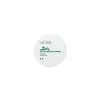What's inside
What's inside
 Key Ingredients
Key Ingredients

 Benefits
Benefits

 Concerns
Concerns

 Ingredients Side-by-side
Ingredients Side-by-side

Silica
AbrasiveAluminum Starch Octenylsuccinate
AbsorbentDimethicone/Vinyl Dimethicone Crosspolymer
Skin ConditioningMica
Cosmetic ColorantMethicone
EmollientSilica Silylate
EmollientCentella Asiatica Extract
CleansingAsiaticoside
AntioxidantAsiatic Acid
Skin ConditioningMadecassic Acid
Skin ConditioningMadecassoside
AntioxidantCaprylyl Glycol
EmollientEthylhexylglycerin
Skin ConditioningCalamine
AbsorbentCeramide NP
Skin ConditioningPanthenol
Skin ConditioningWater
Skin ConditioningButylene Glycol
HumectantCalendula Officinalis Flower Extract
Masking1,2-Hexanediol
Skin ConditioningTocopherol
AntioxidantSodium Hyaluronate
HumectantPropolis Extract
Skin ConditioningSilica, Aluminum Starch Octenylsuccinate, Dimethicone/Vinyl Dimethicone Crosspolymer, Mica, Methicone, Silica Silylate, Centella Asiatica Extract, Asiaticoside, Asiatic Acid, Madecassic Acid, Madecassoside, Caprylyl Glycol, Ethylhexylglycerin, Calamine, Ceramide NP, Panthenol, Water, Butylene Glycol, Calendula Officinalis Flower Extract, 1,2-Hexanediol, Tocopherol, Sodium Hyaluronate, Propolis Extract
Mica
Cosmetic ColorantKaolin
AbrasivePolymethyl Methacrylate
Aluminum Starch Octenylsuccinate
AbsorbentOctyldodecyl Stearoyl Stearate
EmollientSilica
AbrasivePolypropylene
Squalane
EmollientPolyethylene
AbrasiveSilica Dimethyl Silylate
EmollientSorbitan Isostearate
EmulsifyingDimethicone
EmollientMethicone
EmollientEthylhexylglycerin
Skin ConditioningGlyceryl Caprylate
EmollientWater
Skin ConditioningMineral Salts
Skin ConditioningButylene Glycol
HumectantCamellia Sinensis Leaf Extract
AntimicrobialPhenoxyethanol
PreservativeCaprylyl Glycol
Emollient1,2-Hexanediol
Skin ConditioningMentha Arvensis Extract
MaskingDisodium EDTA
Acetic Acid
BufferingMica, Kaolin, Polymethyl Methacrylate, Aluminum Starch Octenylsuccinate, Octyldodecyl Stearoyl Stearate, Silica, Polypropylene, Squalane, Polyethylene, Silica Dimethyl Silylate, Sorbitan Isostearate, Dimethicone, Methicone, Ethylhexylglycerin, Glyceryl Caprylate, Water, Mineral Salts, Butylene Glycol, Camellia Sinensis Leaf Extract, Phenoxyethanol, Caprylyl Glycol, 1,2-Hexanediol, Mentha Arvensis Extract, Disodium EDTA, Acetic Acid
 Reviews
Reviews

Ingredients Explained
These ingredients are found in both products.
Ingredients higher up in an ingredient list are typically present in a larger amount.
1,2-Hexanediol is a synthetic liquid and another multi-functional powerhouse.
It is a:
- Humectant, drawing moisture into the skin
- Emollient, helping to soften skin
- Solvent, dispersing and stabilizing formulas
- Preservative booster, enhancing the antimicrobial activity of other preservatives
Aluminum Starch Octenylsuccinate is a synthetic powder used as an absorbent, thickener, and anti-caking agent.
As an absorbent, it is great at mattifying skin by soaking up the oil. This is why you'll find it in a range of products from makeup to moisturizers.
This ingredient is considered a modified starch. Starch can also be found naturally in plants.
One study from 1991 found that 5% of this ingredient enhanced titanium dioxide SPF by as much as 40%. The study found 1% titanium dioxide had a 5.6 SPF and adding 5% of aluminum starch octenylsuccinate boosted it to an SPF of 8.1
Although “aluminum” in an ingredient name can raise red flags for some consumers, the form and usage context matter significantly. For typical topical applications, there is no substantial evidence of health risks - such as cancer, neurotoxicity, or systemic “aluminum overload.”
Learn more about Aluminum Starch OctenylsuccinateButylene Glycol (or BG) is used within cosmetic products for a few different reasons:
Overall, Butylene Glycol is a safe and well-rounded ingredient that works well with other ingredients.
Though this ingredient works well with most skin types, some people with sensitive skin may experience a reaction such as allergic rashes, closed comedones, or itchiness.
Learn more about Butylene GlycolCaprylyl Glycol is a humectant and emollient, meaning it attracts and preserves moisture.
It is a common ingredient in many products, especially those designed to hydrate skin. The primary benefits are retaining moisture, skin softening, and promoting a healthy skin barrier.
Though Caprylyl Glycol is an alcohol derived from fatty acids, it is not the kind that can dry out skin.
This ingredient is also used as a preservative to extend the life of products. It has slight antimicrobial properties.
Learn more about Caprylyl GlycolEthylhexylglycerin (we can't pronounce this either) is commonly used as a preservative and skin softener. It is derived from glyceryl.
You might see Ethylhexylglycerin often paired with other preservatives such as phenoxyethanol. Ethylhexylglycerin has been found to increase the effectiveness of these other preservatives.
Methicone is a type of silicone and is a simpler form of dimethicone.
Silicones are used to enhance the texture of products and have emollient properties. Methicone is used to give products a silky texture and improves spreadability.
Mica is a naturally occurring mineral used to add shimmer and color in cosmetics. It can also help improve the texture of a product or give it an opaque, white/silver color.
Serecite is the name for very fine but ragged grains of mica.
This ingredient is often coated with metal oxides like titanium dioxide. Trace amounts of heavy metals may be found in mica, but these metals are not harmful in our personal products.
Mica has been used since prehistoric times throughout the world. Ancient Egyptian, Indian, Greek, Roman, Aztec, and Chinese civilizations have used mica.
Learn more about MicaSilica, also known as silicon dioxide, is a naturally occurring mineral. It is used as a fine, spherical, and porous powder in cosmetics.
Though it has exfoliant properties, the function of silica varies depending on the product.
The unique structure of silica enhances the spreadability and adds smoothness, making it a great texture enhancer.
It is also used as an active carrier, emulsifier, and mattifier due to its ability to absorb excess oil.
In some products, tiny microneedles called spicules are made from silica or hydrolyzed sponge. When you rub them in, they lightly polish away dead skin layers and enhance the penetration of active ingredients.
Learn more about SilicaWater. It's the most common cosmetic ingredient of all. You'll usually see it at the top of ingredient lists, meaning that it makes up the largest part of the product.
So why is it so popular? Water most often acts as a solvent - this means that it helps dissolve other ingredients into the formulation.
You'll also recognize water as that liquid we all need to stay alive. If you see this, drink a glass of water. Stay hydrated!
Learn more about Water